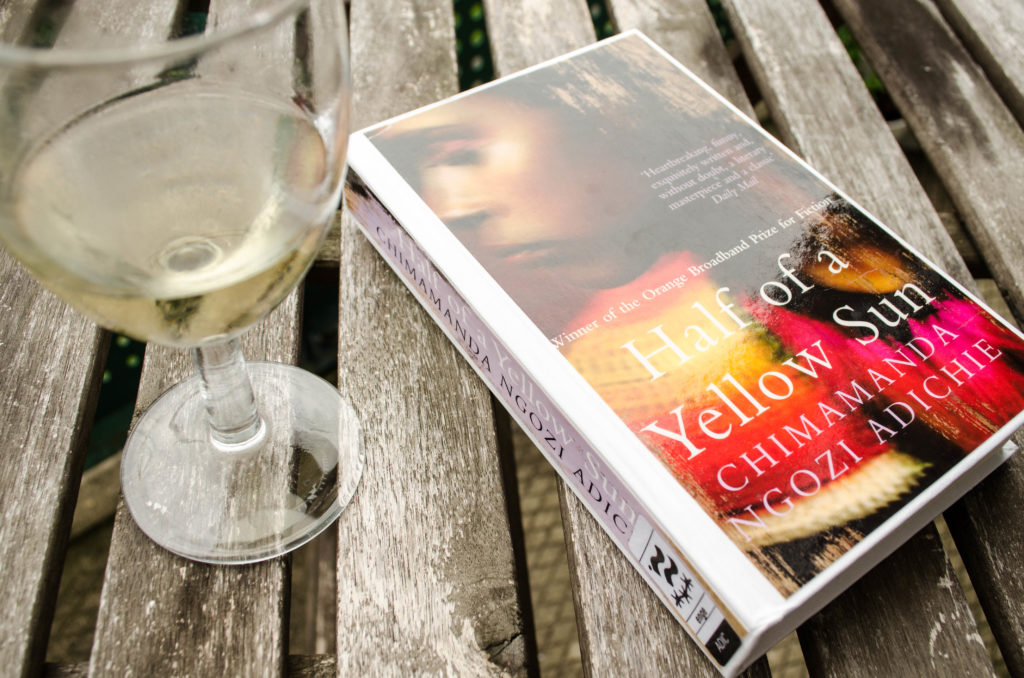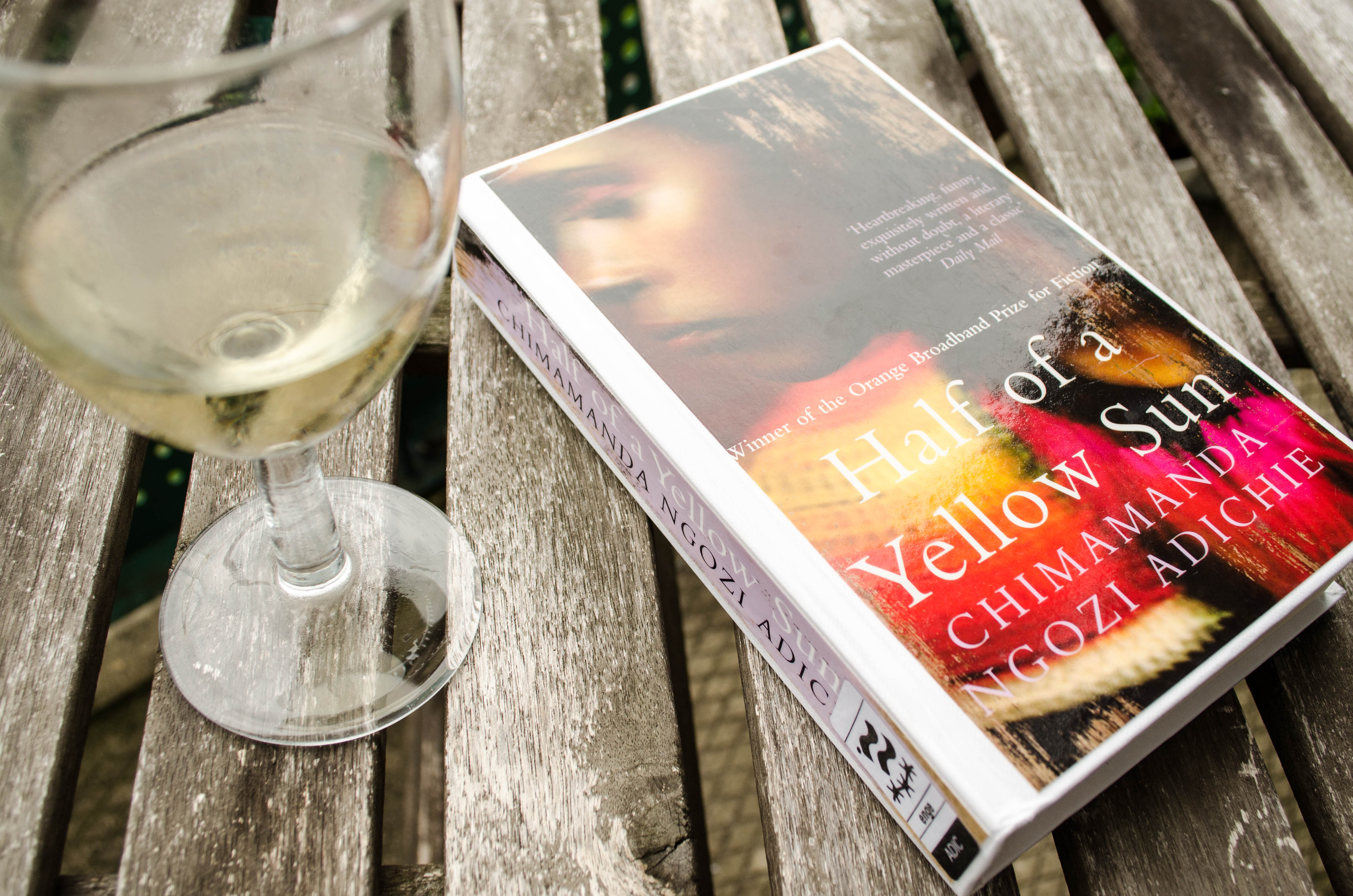The monthly posts were getting a little out of control, so I’m switching it up and trying a weekly review of the stuff I’m reading.
Just finished
 Half of a Yellow Sun
Half of a Yellow Sun by Chimamanda Ngozi Adichie
While not quite as perfect as Americanah, Half of a Yellow Sun is still better than most of the other novels I’ve read lately. I’m embarrassed that I didn’t know anything about the Nigerian-Biafran war in the 60s and it was refreshing that Adichie didn’t let me off the hook for that as a reader. Through exquisite storytelling and the creation of empathetic, fully-rounded characters, Adichie elicits feelings of shame and complicity without making the reader feel defensive or angry. She writes emotionally and factually, presenting the nuances of the war and still managing to posit a very clear point of view. I loved this book and I can’t wait to get my hands on everything else she’s written.
How to Live Safely in a Science Fictional Universe by Charles Yu
For what seems to be, ostensibly, a science fiction novel, HTLSIASFU is pretty light on plot. The bulk of the action occurs in about 20 pages; the rest of the book is sentimental philosophizing and the conceit that contains the sentiment in a dubiously acceptable wrapper. As a meditation on guilt and nostalgia, I liked it. That whole notion of children breaking their parents’ hearts and vice versa is one I find poignant and relatable. But the whole premise of the novel – nostalgia as literal time travel – felt a little too blunt and ham-handed. The result is an unnecessary film of metaphor that blurs the tender heart of the book instead of enhancing it. I really liked the son-of-immigrant-parents thread, and I wish the author had come at that either more directly or more artfully.
Currently reading
Not on Fire, but Burning by Greg Hrbek
From the first 10 pages, I was totally hooked. I had to tear myself away from reading to write this post. The prologue centers around a young girl named Skyler who is babysitting a small child when a bizarre disaster hits San Francisco. Explosion, toxic sludge falling from the sky, a blinding flash of light. It’s not clear what happened and when you jump into the future with chapter 1, it’s still not clear. The near-future version of the US is broken up into territories, reservations and internment camps filled with Muslims. Islamophobia is rampant and there is an undercurrent of weirdness and rage as we follow an almost-teenager named Dorian. Dorian has been dreaming about his older sister Skyler, whom his parents don’t remember and don’t believe exists. An older neighbor who fought in Gulf War III has just adopted a boy from one of the camps, and that boy, Karim, is hosting a pool party at the insistence of his adoptive guardian. Dorian has recently been in trouble for writing “Fuck Islam” on the bathroom door of a mosque and his parents are insisting that he, the only one among his group of 4 boys, attend the party. First impression: so long weekend plans.
On the horizon
I’m really excited to have received my first giveaway book. Since my oft-discussed book scarcity dilemma, I’ve joined nearly every new release and ARC giveaway that I can find. I got Kate Tempest’s The Bricks that Built the Houses (published in April of this year) from a Shelf Awareness contest, and I’m looking forward to reading it. Tempest is a British poet and rapper, and this is her first novel. I try to avoid knowing too much about a book before I read it, but judging from the cover (the only way to go) and a gut hunch, I’m thinking it’s going to fall into a Caitlin Moran-ish vibe. We’ll see.
Also on my radar is the next book club pick, Augustus by John Williams. My history knowledge is shit, so I want to do a little wiki research before I get started on this one. When we read Pure
by Andrew Miller the gaping hole where my knowledge about the French revolution should be seriously hindered my enjoyment of the book. Assuming everyone actually finishes it (we typically have a no-classics policy, so I’m not overly confident), the conversation should be a good one.
